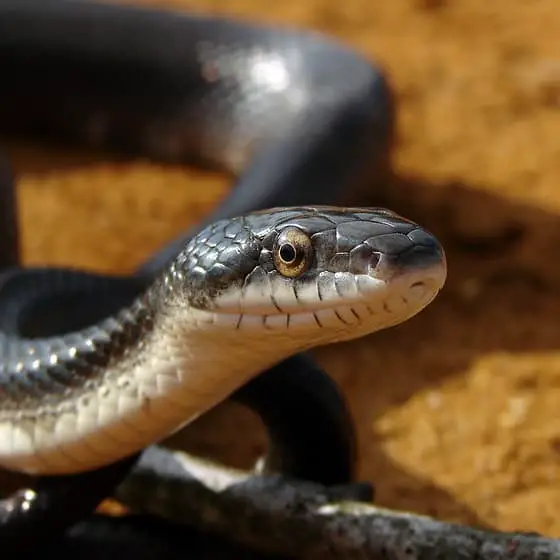Pantherophis alleghaniensis, commonly called the eastern rat snake or the black rat snake is a large nonvenomous snake found in the Eastern United States.
Size
The eastern rat snake is one of the larger snake species found in the United States. On average, adults reach a length of 36 to 72 inches (90-180 cm). The longest ever recorded eastern rat snake was just over 90 inches (230 cm) long. Eastern rat snakes are slightly smaller than their closely related look-alike the western rat snake.
Description
Other than the fact that they are slightly smaller, eastern rat snakes look almost identical to western rat snakes. The appearance of eastern black rat snakes depends greatly on the age of the snake. Juvenile snakes have a white or light grey base color covered with dark brown or grey/black blotches on their body.
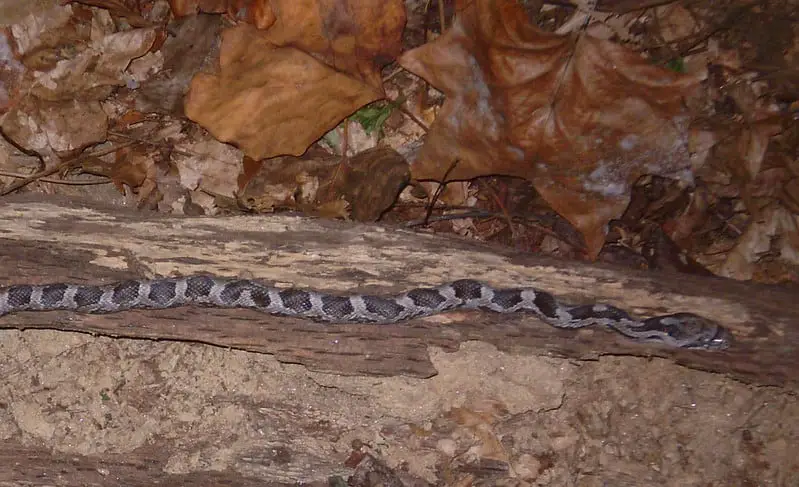
Adult eastern rat snakes have a black body. Their belly is light grey or white with some small grey and black blotches. Some adult snakes still some traces of the juvenile patterns, even when fully grown. In the northern part of their range, especially in Northeastern New York and Pennsylvania, the eastern rat snake can also be confused with the (also nonvenomous) grey rat snake. Despite their name, grey rat snakes can also turn completely black in the northern part of their range.
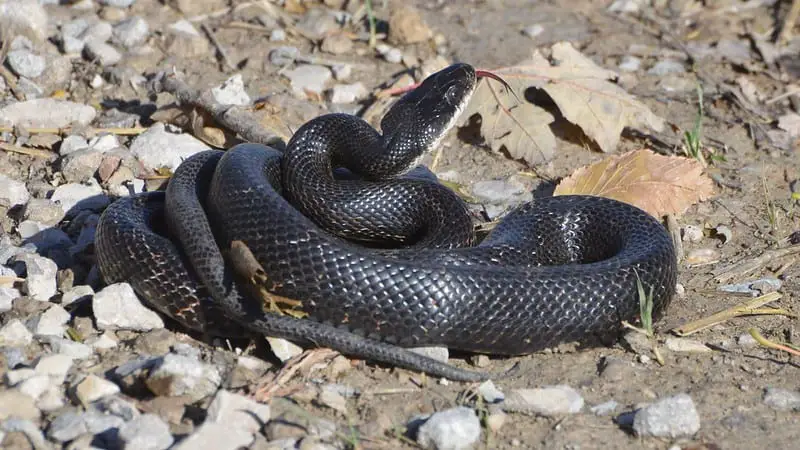
An exception of the standard look of the Eastern rat snake are specimen found in Florida. The so called Florida rat snake or yellow rat snake is bright yellow with four slightly darker yellow, brown or even black longitudinal stripes along their body.

Diet an Habitat
The eastern rat snake can be found in a variety of habitats. Since it is an excellent climber, and uses these skills to raid bird’s nests for their eggs or juveniles, it is often found in forest areas. The rat snake is also a great swimmer and often seen in small rivers or streams. The rat snake is a constrictor snake. When hunting, it bites into its prey, holds onto it and rolls its flexible body around it and suffocates the prey. Even though small mammals like mice and rats are its main prey, it also hunts other snakes, chipmunks, squirrels, eggs and birds.
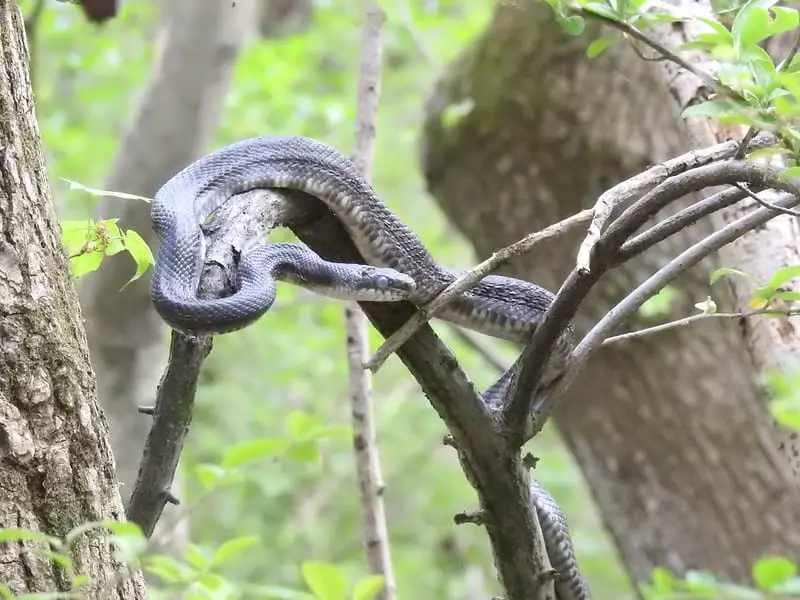
Bite
The eastern rat snake is a nonvenomous snake. It does not pose any risk for humans. Even though it is a large snake, it does not posses the power to suffocate a person. The first defense mechanism when the snake is threatened is to either escape quickly or roll up in a kinked way. If the first line of defense does not deter the attacker, it makes its tail vibrate. This form of mimicry of the rattlesnake has to potential to scare off some potential predators.
If the snake feels cornered or is handled, it can release a foul smelling musk and put up a tough fight. In this state, the snake will not hesitate to bite repeatedly. The snake’s teeth are not very large and a bite is not dangerous for humans. We still do not recommend handling fully grown adults.
Geographic range
The eastern rat snake can be found in Florida, east of the Apalachicola River, in Georgia, east of the Chattahoochee River and east of the Appalachian Mountains, in Vermont, Massachusetts, Connecticut, Rhode Island, New York, Pennsylvania, New Jersey, Delaware, Maryland, Virginia, North Carolina, South Carolina, Georgia, and Florida.
The following map shows the ranges of the three Pantherophis species (eastern rat snake, western rat snake, gray rat snake) in the United States:
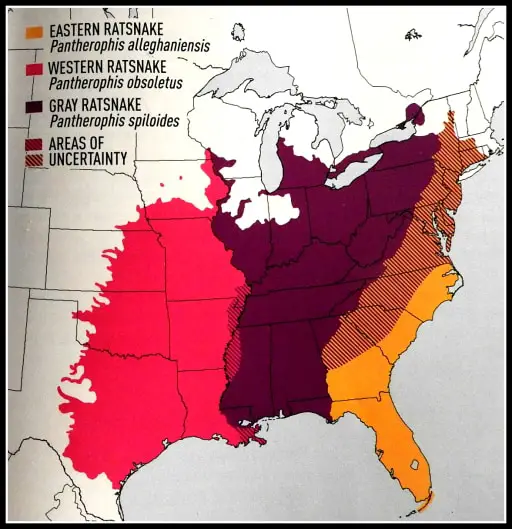
Scientific classification of Pantherophis alleghaniensis
- Kingdom: Animalia
- Phylum: Chordata
- Class: Reptilia
- Order: Squamata
- Suborder: Serpentes
- Family: Colubridae
- Genus: Pantherophis
- Species: Pantherophis alleghaniensis
This species was formerly classified in the genus Elaphe as a subspecies of Elaphe obsoleta.
